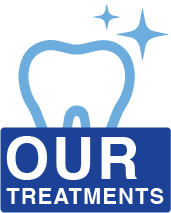
Gum disease
What is gum disease?
Gum disease is an inflammation of the gum line that can also affect the bone that surrounds and supports your teeth if left untreated. There are three stages — gingivitis, periodontitis and advanced periodontitis.
How do I prevent gum disease?
As well as regular check-ups, you need to brush and floss at least twice a day, reducing the build-up of plaque, which is usually the cause of gum disease. Rinsing your mouth with a mouthwash that’s used to treat gingivitis can be helpful, and try to avoid sugary foods and drinks.
What are the symptoms?
Without regular check-ups, you probably won’t know that you have gum disease until it’s in the more advanced stages.
Gum disease can be painless, so it is important to keep an eye on the following symptoms:
- Bleeding gums, especially when brushing your teeth.
- Any swelling, redness or tenderness in the gums.
- Gums that recede or move away from the tooth.
- Persistent bad breath or bad taste in the mouth.
- Pain when chewing.
- Loose teeth.
- Visible pus surrounding the teeth and gums.
Who can get gum disease?
Gum disease can happen to anyone at any age, especially if you have not been making oral hygiene a priority. However, it is most common in people over the age of 30. There are some groups in the population who are at increased risk, including diabetics, pregnant women, anyone with a poor diet and those taking illicit drugs.
What should I do about it?
If left untreated, gum disease can become a serious problem. Once it is past the earliest stages, professional treatment from your dentist or hygienist is the only way to cure gum disease. If you notice any of these symptoms, the sooner you seek treatment, the better your chances are of saving your teeth and health.








